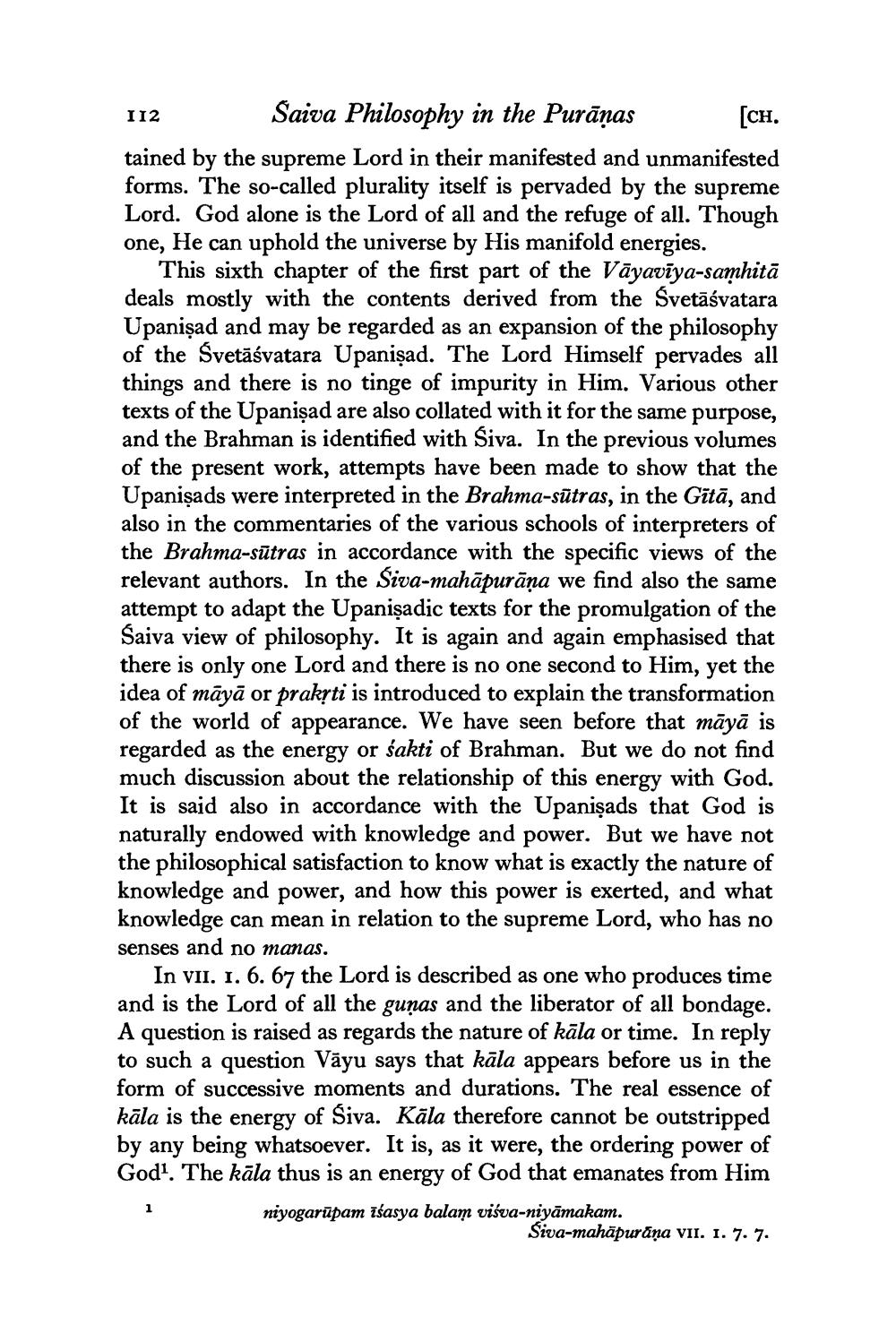________________
112 Saiva Philosophy in the Purānas [CH. tained by the supreme Lord in their manifested and unmanifested forms. The so-called plurality itself is pervaded by the supreme Lord. God alone is the Lord of all and the refuge of all. Though one, He can uphold the universe by His manifold energies.
This sixth chapter of the first part of the Vāyavīya-samhita deals mostly with the contents derived from the Svetāśvatara Upanişad and may be regarded as an expansion of the philosophy of the Svetāśvatara Upanişad. The Lord Himself peryades all things and there is no tinge of impurity in Him. Various other texts of the Upanişad are also collated with it for the same purpose, and the Brahman is identified with Siva. In the previous volumes of the present work, attempts have been made to show that the Upanişads were interpreted in the Brahma-sūtras, in the Gītā, and also in the commentaries of the various schools of interpreters of the Brahma-sūtras in accordance with the specific views of the relevant authors. In the Siva-mahāpurāņa we find also the same attempt to adapt the Upanişadic texts for the promulgation of the Saiva view of philosophy. It is again and again emphasised that there is only one Lord and there is no one second to Him, yet the idea of māyā or prakrti is introduced to explain the transformation of the world of appearance. We have seen before that māyā is regarded as the energy or sakti of Brahman. But we do not find much discussion about the relationship of this energy with God. It is said also in accordance with the Upanişads that God is naturally endowed with knowledge and power. But we have not the philosophical satisfaction to know what is exactly the nature of knowledge and power, and how this power is exerted, and what knowledge can mean in relation to the supreme Lord, who has no senses and no manas.
In VII. 1. 6. 67 the Lord is described as one who produces time and is the Lord of all the gunas and the liberator of all bondage. A question is raised as regards the nature of kāla or time. In reply to such a question Vāyu says that kāla appears before us in the form of successive moments and durations. The real essence of kāla is the energy of Siva. Kāla therefore cannot be outstripped by any being whatsoever. It is, as it were, the ordering power of God'. The kāla thus is an energy of God that emanates from Him niyogarūpam īśasya balam visva-niyāmakam.
Siva-mahāpurāņa VII. I. 7. 7.




